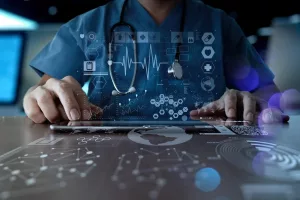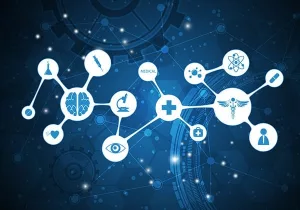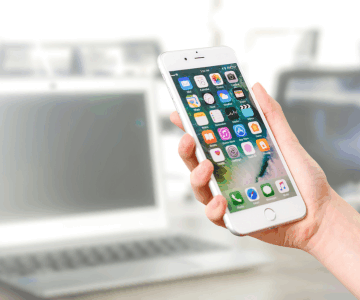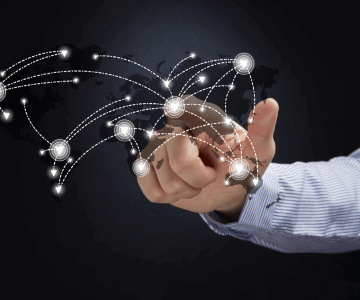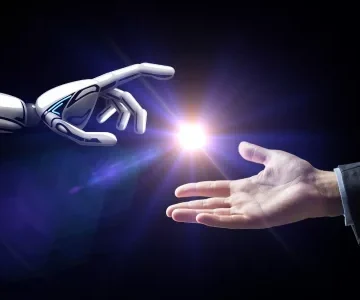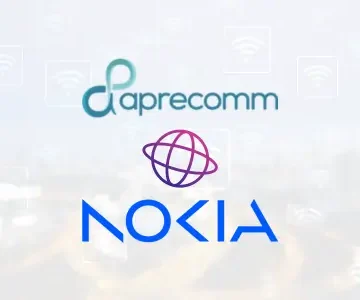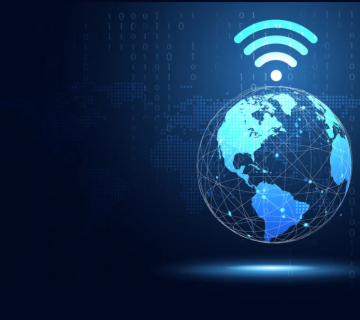“2020” a remarkable year in human history, nobody can ever forget what they went through. The situations that 2020 arouse, demanded medical facilities and their convenience more than anything else. Every industry had to function remotely. The internet connection in various forms was the only support making remote functioning possible. How would the lockdown be if the internet connection had stopped working?
The uncertain situations we went through for months, forced the industry experts to take a step ahead of conventional practices and move towards a more convenient and situation-centric solution. And because of that, we had doctors consulting remotely and online medicine selling firms boosting their operation in every way possible.
Most of the houses and institutions function on Wi-Fi networks because it’s the best in terms of other options available. When the lockdown occurred, it’s the Wi-Fi that we were dependent upon to carry out most of our daily tasks.
Considering the healthcare industry, many activities are heavily dependent upon Wi-Fi. Not having a reliable Wi-Fi connection can disrupt these processes and possibly cost the lives of people.
Here are various healthcare technologies used by institutions, where AI-enabled Wi-Fi plays an important role in smooth functioning:
- Communication
Internal communication plays an important role in the synchronization of all the efforts that are carried by the group of health professionals. Situations in healthcare institutions are extremely critical, time is equal to the life of the patient. The conventional methods that are used in most hospitals around the globe are not reliable enough. AI-enabled Wi-Fi gives maximum uptime which can keep all the communicating devices interconnected for prolonged periods. This will ensure a smooth flow of communication as a stable network is spread across the hospital. If it’s a matter of a patient’s life, a reliable Wi-Fi connection becomes a crucial part of communicating effectively among the team.
2. Medical applications and devices
Technological advancement in the healthcare industry has encouraged the rise of various applications which are a great value addition in this industry. Some of the most common applications used are Epocrate and UpToDate. These applications provide necessary information about many diseases and also prescribe medicines for them. Neuro toolkit is another extensively used application by neurologists to detect the intensity of stroke symptoms.
A pacemaker is a device that is implanted into the human body in the chest, ideally below the collar bone. Whenever the device detects an irregular heartbeat rhythm, the device emits electric shocks to the heart, to get it back to normal. This device also uses Wi-Fi to give information about its activities and the patterns of heartbeat rhythm. The pacemaker is only one of the many devices that use Wi-Fi. Commercial use of these applications and devices heavily relies upon Wi-Fi. A non-reliable Wi-Fi connection is an invitation to inconvenience and lack of information at the point necessary.
3. Data Storage and management
Cloud technology is benefiting the healthcare industry as well. All the data that used to be stored in hardware and physical shelves have now shifted to cloud storage. Hospitals are using cloud storage to store all the documents and user information due to the inconvenience traditional forms of storage have. Taking out old data from shelves would become a big challenge and hardware is prone to get corrupt. A secure Wi-Fi is necessary to efficiently manage, protect, and access the data.
4. Smart devices and watches
Smart devices are the new micro health trackers of this generation. Anyone can get access to these and take their benefits. As time is passing by, these devices are upgrading and becoming more & more capable. Now they are capable of tracking the heartbeat, blood pressure, and stress level of a person. Synchronization of these devices to the cell phone can give valuable insights about various activities and also suggest improvements to a person’s routine. A secure and reliable Wi-Fi connection would be a great help to get timely updates about the health of a person.
5. IoMT
Internet of Medical Things is the connection of devices and software that connect to healthcare IT systems via online networks. All these devices are connected with a central network i.e. Wi-Fi and are also interconnected among each other. These devices record real-time data and transfer it to the concerned authority. In case any emergency symptoms arise in a person, doctors can identify them before the patient even informs them. Also, remote monitoring equipment has started to provide great convenience to people and doctors. These machines can monitor a patient’s heart activity, glucose levels, and many more things, which are then transferred to the doctors, reducing regular visits to the hospitals. These devices are extremely helpful in saving a person’s life and giving prompt prescriptions. But, the dependency of these devices is upon fast and secure Wi-Fi which can uninterruptedly transfer information at regular intervals.
6. Healthcare institutions
Many educational institutions are using digital means to enhance the learning experience for students. Internet access helps the students to get prompt information and get authenticity checked for information they are being exposed to. After 2020, many sectors including healthcare institutions are carrying out their batches through virtual meetings. A secure Wi-Fi connection becomes a base for carrying out all these activities.
With all of these technologies entering into the healthcare industry, all of them are based upon Wi-Fi. In the earlier blog, we talked about how automation will improve your Wi-Fi experience, a survey conducted shows 50% of the efforts of in-house network engineers are put into fixing Wi-Fi issues. If network professionals in health institutes will have to spend a significant amount of time on fixing Wi-Fi, there will be a huge delay in getting the core tasks completed.
Currently, these technologies are slowly rising in the healthcare industry, most of the technologies mentioned above have not become mainstream yet. Still, there is time for the industry to adopt AI-enabled Wi-Fi. Once these technologies start to get generalized around the globe, it would create havoc if institutions are not equipped with modernized Wi-Fi.
AI-enabled Wi-Fi has many benefits, it can diagnose Wi-Fi issues automatically, give better security, provide insights about users, and much more. All the processes dependent upon Wi-Fi will flow smoothly without any disruption. It becomes necessary for the healthcare industry to adopt AI-enabled Wi-Fi as it is one of the most important industries in the world. Upgradation of this industry gives hope to humanity, as this is the sector that makes the life of the people better.
Keep reading this space to discover the latest trends in Wi-Fi technology and how you can utilize those to upgrade your house and business. To know more about the Aprecomm Virtual Wireless Expert and Artificial Intelligence solutions email us at info@aprecomm.ai


